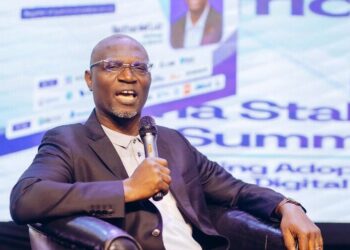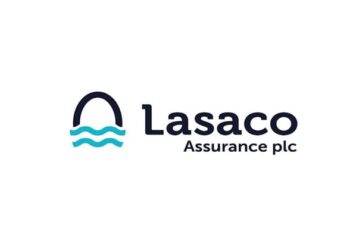A few years ago, I was in a friend’s home somewhere in the U.S. We had just arrived from Nigeria, exhausted but glad to reconnect. After wrestling with the TV to catch a football game, hunger set in.
That was when we both realised there was no one to cook. No chef, no “mama Precious,” no one to send on an errand.
My friend sighed, “See why I miss Naija.”
He had lived in the U.S. for nearly 20 years, owned a successful business, and had several properties. Yet, despite all that, he couldn’t replicate the everyday luxuries he enjoyed in Nigeria.
“Back home, I have two drivers and a chef, all for less than a million naira monthly,” he said. “Here, I’d pay ten times that, assuming I could even find people to do it.”
That conversation stayed with me because it captured the strange paradox of wealth and comfort across countries.
A Nigerian earning N1.5 million monthly, about $1,000, is considered lower middle class. They can rent a decent flat, hire domestic help, pay school fees, and still enjoy a weekend brunch.
But in the U.S., $1,000 barely covers groceries and gas. It’s roughly $6.50 an hour, far below the federal minimum wage. The same income that makes one comfortable in Lagos barely keeps another afloat in Texas.
This is the odd reality of global living standards. Wages in the West are higher because society is structured to sustain a broad middle class. People earn enough to afford the basics, which makes domestic labour expensive.
That’s why immigration is essential, as someone has to do the low-paying but necessary jobs. In fact, I recently read that the NVIDIA CEO Jenson Huang argued that plumbers and electricians are now the new millionaires, a testament to how valuable skilled manual work has become.
In Nigeria, it’s more likely the opposite. We pay very little for the same jobs that cost a fortune elsewhere. A driver might earn N80,000 a month, a nanny N50,000, and an electrician N20,000 per job. For the middle class, this affordability translates to convenience. But it also exposes a deeper issue: our economy depends on cheap labour to sustain comfort for a few.
It’s why a N1.5 million earner can feel rich here but still live in a system that doesn’t work. Their comfort is self-financed: generators for power, boreholes for water, and private schools for education.
In the U.S., someone earning the same $1,000 would struggle, but their rent, healthcare, and basic infrastructure are predictable. So, while the Nigerian looks richer, the American enjoys a higher quality of life, even if it means surviving on welfare.
This raises a curious question: if labour and services are this cheap, does it mean the naira is undervalued or that productivity is low? In theory, a weak currency and cheap wages should make Nigeria globally competitive.
It should help us export more and attract manufacturing jobs. But that only works if productivity is high. Instead, we use our cheap labour advantage to make domestic life comfortable — not to build export powerhouses.
The government’s recent move to double the minimum wage is welcome, but it barely scratches the surface. Inflation has already devoured much of the gain. Yet, Nigeria still remains one of the few places where services are relatively affordable despite rising costs.
This affordability, if properly channelled, could be a competitive advantage. We could produce more, export more, and create better-paying jobs — instead of relying on cheapness as our economic identity.
My friend eventually moved back to Nigeria. He said he missed “the freedom of comfort.” But he also admitted that every time the generator hummed through the night, or traffic trapped him for hours, he missed America’s quiet order. Maybe that’s the true story of our economy — comfort without structure, wealth without systems, luxury built on imbalance.
So who really lives better — the Nigerian earning N1.5 million or the American earning $1,000? It depends on what you call living. The Nigerian might eat better, rest better, and have more help. But the American lives in a system where those comforts are built into society, not paid for out of pocket.
Perhaps the goal shouldn’t be to choose one over the other, but to build a Nigeria where both comfort and structure coexist — where wages reflect productivity, not pity, and where enjoying life doesn’t depend on escaping dysfunction.





















Nigeria needs to invest in manufacturing and agriculture a lot
Hmm, this topic is quite interesting.
I might write on something like this.
This analysis about $1,000 and ₦1.5m is misleading. To start with, dollar is not the currency in Nigeria just as Naira is not in the USA. It’s conversion rate that made $1k so huge in Naira.
If you put the currencies side by side, ₦1k cannot afford much in Nigeria but $1k in the USA can still get you somewhere.
In Nigeria, who earns ₦1.5m as monthly salary, aside from the politicians? If you earn $3k per month in the US, you can afford a good apartment and be comfortable to an extent. Meanwhile, what can happen if you earn ₦3k in Nigeria?
By comparing values based on exchange rates is misleading. To get a good perspective, place the currencies side by side, one on one.
I agree with Olu Awotunde, the comparison in this article is unbalanced. A meaningful analysis requires an ‘apples-to-apples’ economic comparison.
The analysis should have contrasted a U.S. Customer Care Agent earning $3,000 monthly and their Nigerian counterpart earning N500,000. Then a side-by-side budget of routine cost-of-living expenses (housing, feeding, transportation) to understand the disparity in purchasing power.